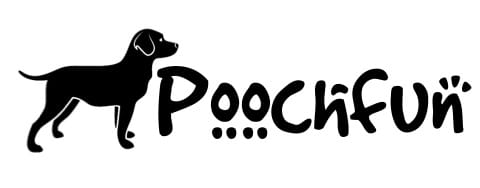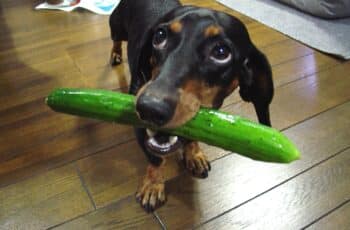It is common to find dogs in the kitchen munching on leftovers and begging for more of their favorite human foods. However, some human foods can be dangerous for dogs to eat and might even cause them to get sick.
Dogs are not typically considered omnivores, but they can still eat some human foods. However, just because you have seen your dog enjoy a few bites of peanut butter doesn’t mean they’re ready for the entire jar. Dogs are incapable of digesting certain plant-based products that humans can easily break down. It’s also important to remember that dogs have their own nutritional needs that may be different from ours.
Many foods that people digest normally, such as fruits and vegetables, can cause problems on a dog’s body, potentially leading to severe health problems. Some foods that people eat, on the other hand, can be safely introduced into a dog’s diet and even provide health benefits such as joint strength, better breath, and allergy immunity.
Dogs can eat many of the same foods that we do, but there are also some human foods that dogs should not eat. However, it is important to note that each dog is different and what they like or dislike may be different from one another.
Here are some of the common foods and whether or not your dog can eat them.
Human Foods Dogs Can Eat
- Carrots – Carrots are safe for your dog to consume both raw and cooked. Carrots are calorie-free and high in vitamins, minerals, and fiber. As a result, they are a highly nutritious snack for your dog. To avoid choking, chop carrots into bite-sized pieces before feeding them to your dog.
- Peanut Butter – Dogs can benefit greatly from the protein found in peanut butter. Niacin, vitamins B and E, and heart-healthy fats are all included. Choosing raw, unsalted peanut butter is the healthiest alternative.
- Eggs – As long as the eggs are fully cooked, they are safe for dogs. Cooked eggs are a great source of protein and can help with indigestion.
- Salmon – Fully cooked salmon is high in protein, healthy fats, and amino acids. It boosts the immune systems of dogs and supports joint and brain health. Raw or undercooked salmon, on the other hand, includes parasites that may make dogs very unwell, resulting in vomiting, diarrhea, dehydration, and, in the worst-case scenario, death.
- Blueberries – Blueberries are healthy and safe for dogs to consume. Blueberries are high in disease-fighting antioxidants, as well as vitamins, minerals, and fiber, all of which may be beneficial to your dog’s health.
- Apples – Dogs can eat sliced apples since they are safe and healthy. Apple seeds, on the other hand, should never be fed to your dog since they contain cyanide, a dangerous toxin in big doses. Always remove the seeds from apples before feeding them to your dog.
- Pineapple – Pineapples are high in vitamins, minerals, and fiber, making them a nutrient-dense treat for your dog. If dogs consume too much pineapple, they may develop symptoms such as nausea and diarrhea, like with other foods. As a result, feeding your dog a modest quantity of pineapple at a time is the ideal option.
- Bread – Small amounts of plain bread (no spices or raisins) will not harm your dog.
Human Foods Dogs Can’t Eat
- Grapes and Raisins – Grapes and raisins should never be fed to your dog. Toxic chemicals in grapes and raisins are dangerous to dogs. They have the potential to cause renal failure and death quickly. Grapes and raisins, even in tiny amounts, can make your dog sick, so it’s best to avoid offering them to your dog completely.
- Chocolate – Chocolate contains methylxanthines, which are stimulants that inhibit a dog’s metabolic process. Even a small amount of chocolate, particularly dark chocolate, can cause diarrhea and vomiting. A high dose can result in irregular heart function and even death.
- Macadamia Nuts – These are some of the most dangerous dog foods. The Protaceae family’s macadamia nuts can cause vomiting, increased body temperature, inability to walk, and lethargy. Worse, they can harm the nervous system.
- Onions and Garlic – Garlic, like onions, leeks, and chives, is an Allium plant that is five times more toxic to dogs than the other Allium plants. Garlic can cause anemia in dogs, which manifests as pale gums, an increased heart rate, weakness, and collapse.
- Avocado – This is due to the presence of a toxin called persin, which is known to be extremely toxic to dogs. It might cause fluid to build up in their lungs and chest, causing breathing problems, oxygen deprivation, and even death.
- Coffee and Tea – Caffeine affects your dog’s neurological system, which can cause hyperactivity, vomiting, diarrhea, an increased heart rate, seizures, and tremors, among other things. Caffeine can have negative effects on dogs even in little doses, so keep coffee and tea out of your dog’s reach.
- Xylitol – It’s a sugar replacement commonly seen in confectionery, gum, baked products, and toothpaste. When dogs eat xylitol, their blood sugar levels drop quickly, causing symptoms including muscular weakness and seizures.
- Lemons and Limes – Lemons and limes are poisonous to dogs. This is due to the presence of a chemical called psoralen in the skins of lemons and limes, which can produce gastrointestinal problems in dogs such as vomiting and diarrhea.
Conclusion
Some foods are healthy and safe for dogs to consume, while some are harmful and even fatal. Please remember that every dog is unique. One dog may tolerate a food perfectly well, while another suffers from adverse effects.
All foods must be introduced gradually into your dog’s diet so that you can observe him for adverse side effects such as allergic reactions. Even if a food is generally considered safe for dogs to eat, a good rule of thumb is to feed it in moderation to your dog. Keep in mind that even healthy foods in excess can lead to canine obesity, which is a major health concern for dogs in the United States.
As your dog’s primary diet, always choose high-quality dog food. This can aid in the prevention of excess weight and other adverse effects. Ask for information with your veterinarian about specific serving sizes of foods to feed your dog.
Nonetheless, giving your dog a treat every now and then can be enjoyable. Just make sure you only feed him non-toxic dog foods.
Frequently Asked Questions:
Can dogs eat pizza?
Many traditional pizza toppings, such as onions and garlic, are considered bad for dogs, and some are even lethal. Too much salt in your dog’s diet might elevate his blood pressure and worsen underlying heart problems. You should never serve pizza to your dog.
Is it OK for dogs to eat ice cream?
While some dogs may tolerate a small amount of plain vanilla ice cream as a treat, there are alternative options that are less likely to cause stomach issues. Ripe bananas and a food processor are all you need.


